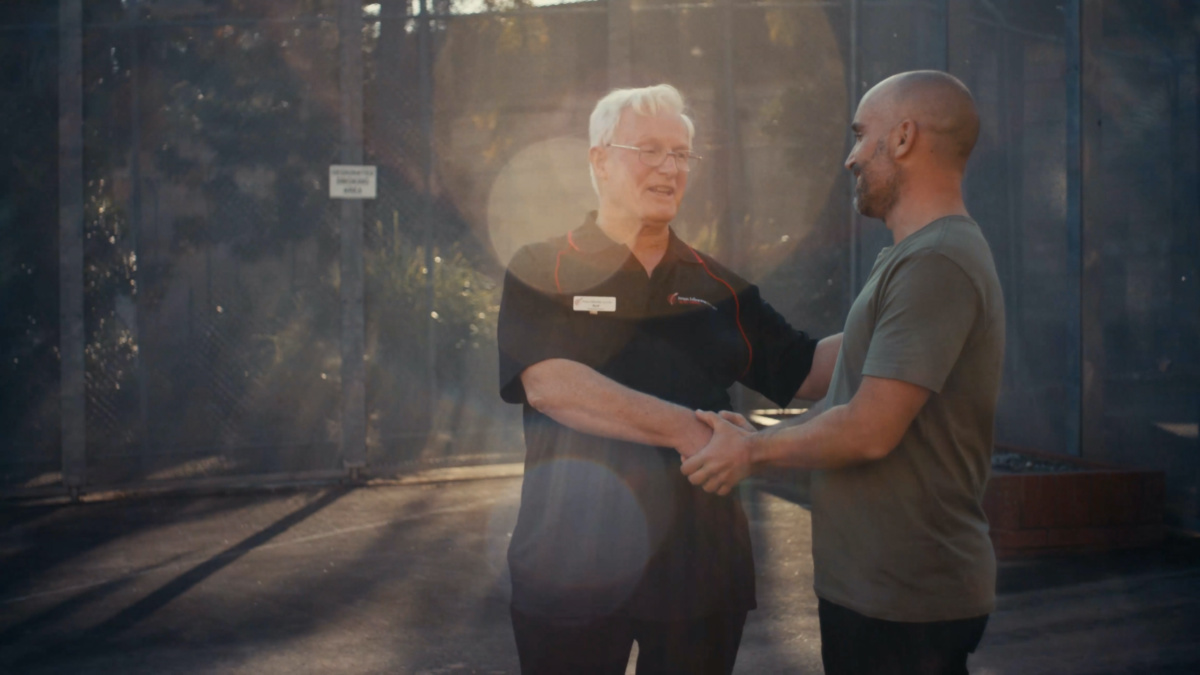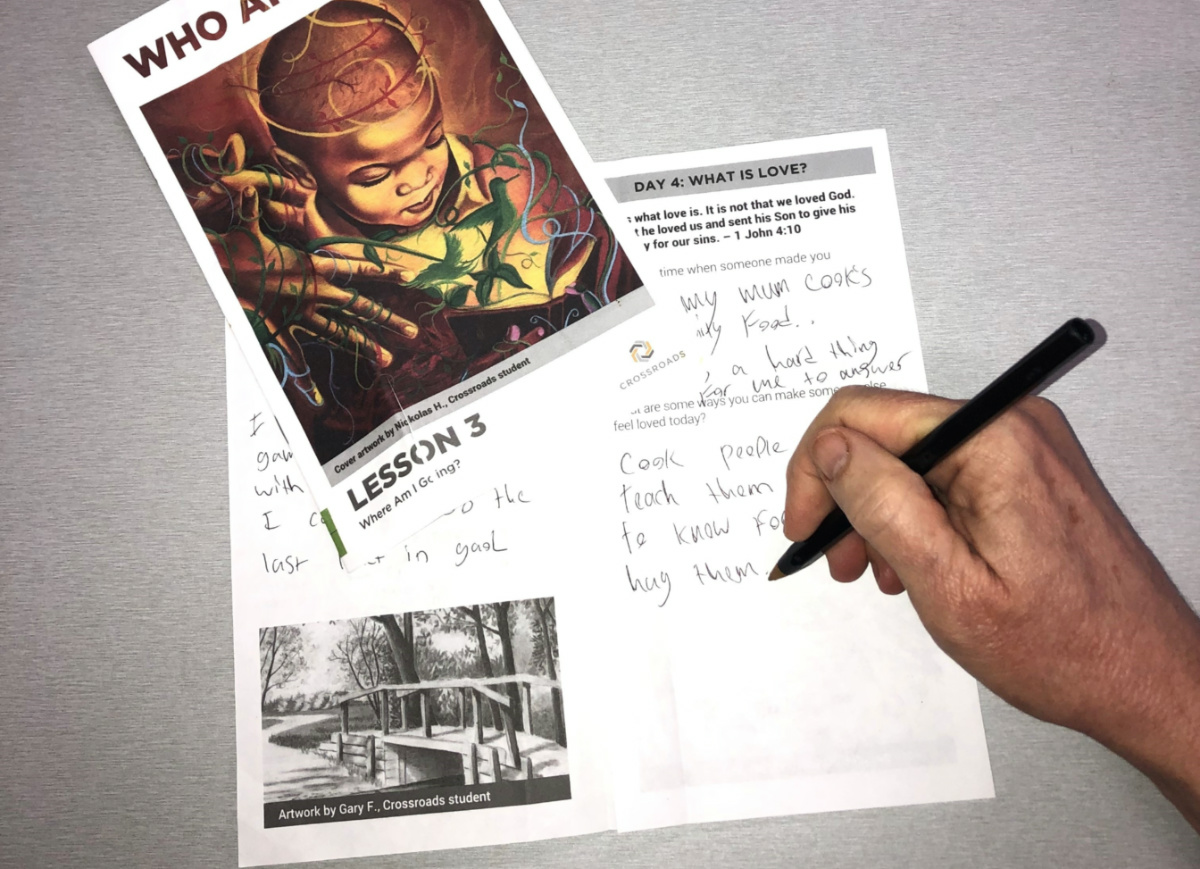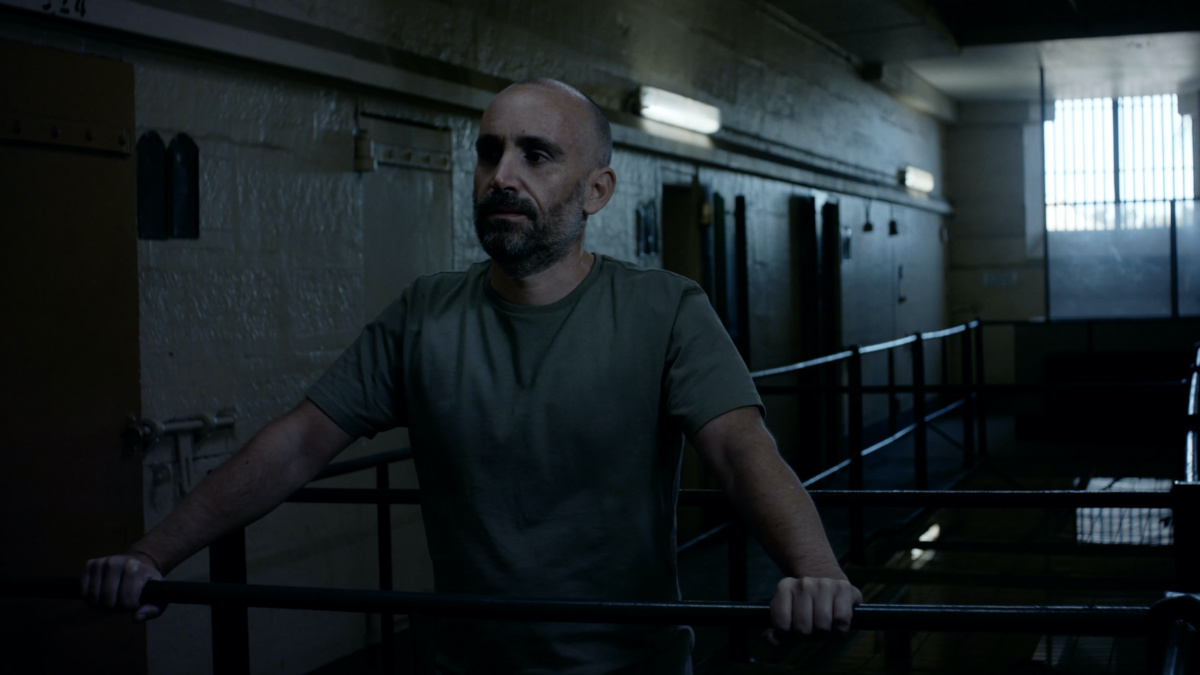
PETA MCCARTNEY reports on how prison ministries in Australia have continued their work despite the coronavirus pandemic…
Sydney, Australia
Danny* was on the brink of losing his faith and who spent almost 18 months behind bars in Western Australia says he became a new man and filled with hope when he took part in the programs offered by Prison Fellowship Australia.
The 37-year-old Christian and former self-employed tradie, says PFA staff and programs were a constant source of help during the “tough journey” of imprisonment during COVID-19.
“It gave me hope and assurance. It restored my faith in God. That ministry has helped me on a tough journey,” Danny told Sight magazine. “In a place like that it turned my fear into hope and that is a sustenance to God. I became a new man.”
His story is one of many heard by prison ministries across Australia during COVID-19 as, despite the major disruptions to the work of prison ministry organisations due to the coronavirus pandemic, they’ve continued the work of sharing Christ’s light with those behind bars.

Prison Fellowship Australia is among the prison ministries operating in Australian prisons. Pictured is a PFA worker with an actor in a scene from a PFA promotional video. PICTURE: Prison Fellowship Australia.
Prison Fellowship Australia, Crossroads Prison Ministries Australia and Kairos Prison Ministry Australia all operate a range of Gospel programs to prisoners and their families, covering every state and territory.
Many of their workers and volunteers have been involved in their programs for decades.
“We ceased engagement in terms of our in-prison activity at that point and basically, since then, it’s been a state-by-state proposition. Prison systems are run by state governments and so the restrictions have been ebbing and flowing, based on what has been happening in each state.”
– Glen Fairweather, general manager of Prison Fellowship Australia.
With extensive lockdowns, restrictions and border closures imposed to stop the spread of the virus – particularly in NSW and Victoria where the majority of infections have occurred – some correctional facilities have locked the doors to the outside world to protect inmates.
This policy has not worked in all cases, with around 200 inmates and staff testing positive to the virus at several NSW jails, including Silverwater and Parklea in Sydney, and in Bathurst.
A Corrective Services NSW spokeswoman said while temporary restrictions were introduced, “Corrective Services NSW will support the return of these services as soon as it is safe to do so and based on expert advice”.
Despite the restrictions in NSW, the work of ministering to inmates has continued in various forms across the nation.
All three organisations say they have either maintained their programs, adapted them as circumstances changed, rescheduled or postponed others, or been granted concessions to use Zoom calls and letter-writing to maintain contact.
Glen Fairweather, general manager of PFA, says COVID-19 has drastically impacted the organisation’s work, with prison visitation cancelled in March/April of 2020, when the pandemic first hit.
“We ceased engagement in terms of our in-prison activity at that point and basically, since then, it’s been a state-by-state proposition. Prison systems are run by state governments and so the restrictions have been ebbing and flowing, based on what has been happening in each state,” Fairweather said.
The organisation has about 900 volunteers, many aged in their 50s, 60s and 70s who help run Art from Inside, the Sycamore Tree Project, Visiting in Prison and Camp for Kids. The average age of inmates is somewhere between the late 20s and early 30s.

A lesson for prisoners provided by Crossroads Prison Ministres. PICTURE: Crossroads Prison Ministries.
There are roughly 90 prisons across the country, with the latest figures from the Australian Bureau of Statistics showing that 42,633 prisoners were in custody in the March quarter of this year, up two per cent (965) from last quarter.
This was down three per cent (1,526) from the March quarter 2020. It also shows the imprisonment rate was 213 people per 100,000 adult population, up from 208 last quarter.
Fairweather says PFA has been able to get back up and running relatively efficiently in Western Australia, Darwin and Alice Springs in the Northern Territory, and in a lot of Queensland prisons where the organisation is part of the official chaplaincy service.
But elsewhere, they have looked at other ways in which they can continue to engage.
“Things like increasing our letter-writing ministry; we have a very faithful band of volunteers who will write letters, often to inmates who don’t have friends or family – we have seen an increase in that,” he said.
This included some correctional services granting concessions, allowing some regular prison visitors to instead write to those inside, which had been a “really positive thing” to maintain relationships.
Video visits – and a video course last year in South Australia – were also allowing connections with prisoners to continue.
Crossroads says COVID-19 has had little impact on its work because it only offers mentoring and correspondence courses through the mail, with the greatest disruption caused by some delays to normal postal delivery times.
The ministry, brought to Australia from the US in 2002, continues to thrive.
Since January 2021 it has had 421 inmates – referred to as ‘students’ – enrol in courses. Currently, in 75 jails across Australia, Crossroads has 400 active mentors engaging with 627 inmates through the Tier 1 basic introductory Bible course, through to Tier 3 courses which look more like Bible College courses and which are run by more senior volunteers, such as ministers. It also operates through some South Pacific nations.

Some of the materials used by Crossroads Prison Ministries. PICTURE: Crossroads Prison Ministries.
Crossroads Chair, Tony Dedda, says from start to finish, their programs could take years to complete and the beauty of their ministry is that they can maintain contact with inmates even if they are moved to another jail.
“These people in jail, they’re there for a reason; they were probably maltreated as children and committed a crime. You never really know what brought them to that level of criminality and crime. All of a sudden they find somebody that encourages them, loves them, and shows that they can be forgiven,” Dedda said.
“They still need to serve their sentence, but they find light in the darkness.”
Kairos operates programs for inmates (Kairos Inside) and their families (Kairos Outside) in NSW – where it started operations and where it runs about 40 per cent of its programs – as well as in Queensland and South Australia. Chair Vern Harvey said in 2019 the organisation ran 34 programs – about half and half Kairos Inside and Kairos Outside – and was looking forward to an increased number in 2020 as it sought to enter some new prisons.
“But in March, 2020, the wheels fell off and we only ran one program – in far north Queensland,” Harvey said.
“They still need to serve their sentence, but they find light in the darkness.”
– Tony Dedda, chair of Crossroads Prison Ministries Australia.
During the Kairos Inside program, inmates are placed in small groups made up of a team leader and other participants. The groups are encouraged to take on the characteristics of a sharing family. For many residents, this is their first experience of a supportive family environment.
After a ‘Short Course’ there is an ongoing ‘Journey’ program where a rotation of team members continue to return every week or fortnight until the next Short Course is run in six or 12 months time.
Kairos Outside for Men and Kairos Outside for Women operate slightly differently, but provide weekends away where there is an opportunity to interact with other families without shame or judgement.
Before the Delta variant took off, Kairos had six programs planned in the second half of 2021, but they will now only run three programs for the whole year – two in South Australia and one in Queensland.
“A number of the programs that are ready to go are now being moved out into the first half of 2022” and in the meantime, Kairos continues to plan and set goals.
“At some point we are going to be implementing those things and we are reasonably optimistic now with the national plan for vaccinations and so on that 2022 will see a return to at least half of our programs,” he said. However, there was another potential cost to the organisation’s operations which they were working hard to avoid.
Harvey said in 2019, the organisation had roughly 1,800 volunteers, including prayer partners and financial donors, but the long interruption to their activities could result in some choosing not to return.
“We have put some effort into maintaining our relationships with our volunteers and we have also used the time as an organisation to do a lot of ‘tidying up’, a lot of reviewing of policies [and] improving our systems so we are ready to go when the opportunity arises,” he said.
This included its work to attract new volunteers, including in Western Australia where it had previously had a presence.

A scene from a promotional video for Prison Fellowship Australia which has about 900 volunteers working with Australian prisoners (pictured posed by an actor). PICTURE: Prison Fellowship Australia.
None of the organisations measured “success” in numbers of prisoners accepting Christ, rather all acknowledged they were playing a small part in the way God was bringing hope to people who had often lived hard lives and who just needed to hear the message of forgiveness.
To that end, their ministry to visit those in prison – even during a pandemic – was a direct answer to Jesus’ call.
Danny, meanwhile, is now working to get his life back on track following his release. He says he’s working to “find himself” and build his future with the help of the same people who have walked beside him since his sentence was handed down.
They continue to guide and mentor him, including helping him find accommodation now that his family doesn’t accept him and only one person from his fellowship group remained in contact.
The best thing, he said, was realising that God has never forsaken him.
• Danny’s first name only has been used to protect his identity.





